Modern Science and Politics
Reexamine the purpose of science, and the relationship between science, technology, and politics.
Summer 2012
Washington, DC
The steady advances in the field of biotechnology have opened a new frontier of ethical and political questions. Without doubt, gratitude is the most appropriate response for the many developments in biotechnology that have done much to alleviate human suffering. At the same time, however, we find ourselves on the threshold of an unprecedented power to shape the character of human life itself—a “brave new world” that brings with it a number of fundamental questions that warrant serious and sustained examination. Indeed, many have argued that the explicit and implicit questions of value raised by the biotechnology revolution constitute the most far-reaching set of challenges for our time, currently at the center of American politics.
In this seminar, students will examine classic texts in the history of political thought that bear on biotechnology and politics. They will also read contemporary authors who address the underlying ethical issues imbedded in the biotechnological revolution. They will grapple with questions about what it means to be human, as well as the relationship among the competing authorities of science, politics and religion in the modern world.
Image courtesy Pixabay
Diana Schaub on bioethics and the Constitution

Diana J. Schaub is Professor of Political Science at Loyola University Maryland and a member of the Hoover Institution’s task force on The Virtues of a Free Society. From 2004 to 2009 she was a member of the President’s Council on Bioethics.

Diana J. Schaub is Professor of Political Science at Loyola University Maryland, a visiting scholar at the American Enterprise Institute, as well as a member of the Hoover Institution’s task force on The Virtues of a Free Society.
She is the author of Erotic Liberalism: Women and Revolution in Montesquieu’s “Persian Letters” (Rowman & Littlefield, 1995), along with a number of book chapters and articles in the fields of political philosophy and American political thought. She is coeditor, along with Amy and Leon Kass of What So Proudly We Hail: The American Soul in Story, Speech, and Song (ISI, 2011). She is a frequent contributor to opinion journals such as the Claremont Review of Books, the Weekly Standard, National Affairs, and the New Atlantis.
From 1994 to 1995 Professor Schaub was the postdoctoral fellow of the Program on Constitutional Government at Harvard University. From 2004 to 2009 she was a member of the President’s Council on Bioethics. She has taught at the University of Michigan at Dearborn and served as assistant editor of The National Interest. She earned an A.B. from Kenyon College, where she was elected to Phi Beta Kappa, and an M.A. and Ph.D. from the University of Chicago.
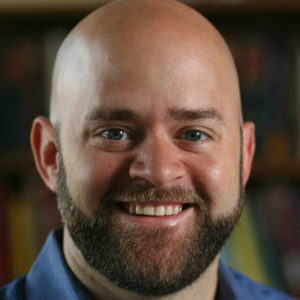
Carter Snead is internationally recognized as a leading expert in public bioethics. His research explores issues relating to neuroethics, enhancement, stem cell research, abortion, and end-of-life decision-making. He is also the editor of two book series for the University of Notre Dame Press – “Catholic Ideas for a Secular World,” and “Notre Dame Studies in Medical Ethics.”

Carter Snead is the William P. and Hazel B. White Director of the Center for Ethics and Culture, Professor of Law in the Law School, and Concurrent Professor of Political Science at the University of Notre Dame. He is internationally recognized as a leading expert in public bioethics – the governance of science, medicine, and biotechnology in the name of ethical goods.
His research explores issues relating to neuroethics, enhancement, stem cell research, abortion, and end-of-life decision-making. He has authored more than 40 journal articles, book chapters, and essays. His scholarly works appear in such publications as the New York University Law Review, the Harvard Law Review Forum, the Vanderbilt Law Review, Constitutional Commentary, Quaderni Costituzionali (Italy’s premier journal of constitutional law), the Yale Journal of Health Policy, Law and Ethics, the Journal of Medicine and Philosophy, and Political Science Quarterly.
He is also the editor of two book series for the University of Notre Dame Press – “Catholic Ideas for a Secular World,” and “Notre Dame Studies in Medical Ethics.” Snead teaches Law & Bioethics, Health Law, Torts, and Constitutional Criminal Procedure.
Snead received his J.D., magna cum laude, from Georgetown University, where he was elected to the Order of the Coif, and his bachelor of arts from St. John’s College in Annapolis, Md. He clerked for Judge Paul J. Kelly, Jr., of the U.S. Court of Appeals for the 10th Circuit.
Readings:
Discussion Questions:
Readings:
Scientific Dimensions
Normative Dimensions
Legal Dimensions
Discussion Questions:
Readings:
Discussion Questions:
Readings:
Discussion Questions:
Readings:
General Reflections
Decisions Regarding Life-Sustaining Measures
Physician-Assisted Suicide
Discussion Questions:
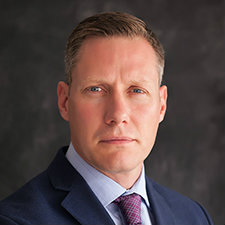
Tobin Craig
Tobin Craig is Associate Professor at Michigan State University. His studies focus on the intersection between modern political philosophy and modern science and technology. He is currently at work on a book length study of the unity of Francis Bacon’s scientific and political thought as well as a study of the place of technology in American political thought.
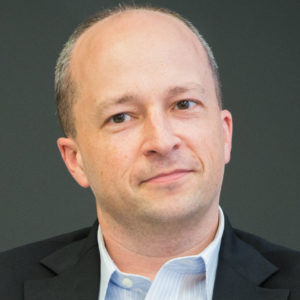
Yuval Levin
Yuval Levin is a Resident Scholar and Director of Social, Cultural, and Constitutional Studies at the American Enterprise Institute and the Editor of National Affairs magazine. Mr. Levin served on the White House domestic policy staff under President George W. Bush.

Adam J. White
Adam J. White is a Resident Scholar at the American Enterprise Institute, and an Assistant Professor at George Mason University’s Antonin Scalia Law School, where he also directs the Gray Center for the Study of the Administrative State at George Mason University’s Antonin Scalia Law School.
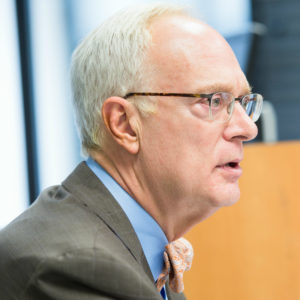
Christopher DeMuth
Christopher DeMuth is a Distinguished Fellow at the Hudson Institute in Washington, D.C. He was President of the American Enterprise Institute for Public Policy Research from 1986–2008 and D.C. Searle Senior Fellow at AEI from 2008–2011.
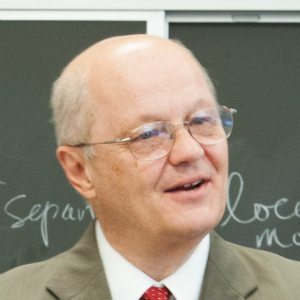
Robert Kraynak
Robert P. Kraynak is Professor of Political Science at Colgate University. He teaches courses in the fields of political philosophy and general education, including courses on American political thought, the history of Western political philosophy, natural law, religion and politics, and conservative political thought.
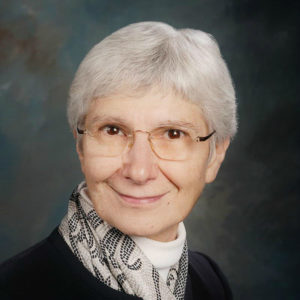
Amy A. Kass
Amy Apfel Kass (1940 – 2015) was a senior fellow at the Hudson Institute, Senior Lecturer Emerita in the humanities at the University of Chicago, and coeditor of What So Proudly We Hail: The American Soul in Story, Speech, and Song. She was an award-winning teacher of classic texts.
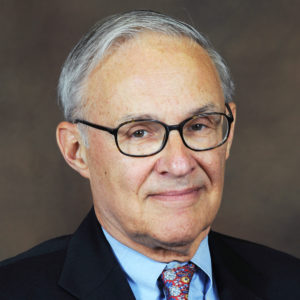
Leon R. Kass
Leon R. Kass, M.D., is the Addie Clark Harding Professor Emeritus in the Committee on Social Thought and the College at the University of Chicago and the Madden-Jewett Chair at AEI. He was the chairman of the President’s Council on Bioethics from 2001 to 2005. He has been engaged for more than 40 years with ethical and philosophical issues raised by biomedical advances and, more recently, with broader moral and cultural issues.